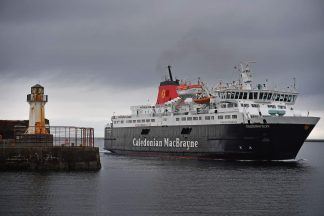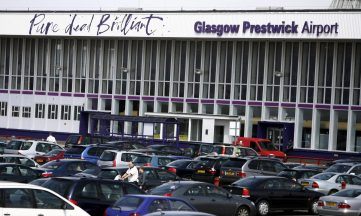The number of firms expected to go bust in Scotland is expected to fall this year, despite the financial chaos caused by Covid-19.
Accountancy firm KPMG said the number of companies going under in November has fallen to 35 from 58 at the same time last year.
The total number for the year is also expected to fall short of the 491 which went bust in 2019.
Since March, the services industry in particular has been hit hard by coronavirus, with forced closures keeping many shuttered for months.
KPMG’s head of restructuring in the UK, Blair Nimmo, said government support may have helped keep firms afloat.
“Comfort can be taken from the fact that we haven’t yet seen the deluge of companies falling into administration that many predicted, as the breadth and depth of support measures available, coupled with a supportive lending community, have given organisations vital breathing space in the crisis,” he said.
However, Mr Nimmo said that it was on companies to ensure they did not try to return to business as usual too quickly, only for restrictions to be re-imposed.
He said: “While recognising that things will not go back to the way they were overnight, and that a phased approach will undoubtedly be necessary, businesses will nevertheless need to take care not to fall into the classic trap of scaling up too quickly.
“Many will have burnt through cash reserves during 2020, and while some will have taken advantage of the various Government support packages available, it must be remembered that at some point, loans will still need to be repaid – a burden which comes on top of having to finance any ramp-up in production, repay tax deferrals and re-engage staff who have been furloughed.”
Speaking directly to industry, Mr Nimmo urged businesses to shift any savings made into day-to-day operations.
He said: “Companies should therefore think about embedding as much of the cost-saving gains made in their initial crisis response as possible into their day-to-day operations, as well as opening dialogue with key suppliers and financial stakeholders on repayment plans that support a recovery on both sides of the table.
“It will be essential to model the medium to long-term financial impact of a market that may ultimately operate on reduced activity levels, and importantly, assess the cost base required to support that, as it is highly unlikely to look the same as the pre-crisis operating model.”
He added: “The old adage that ‘more companies fail coming out of a recession than fail going into it’ will be front of mind for many executives who now are trying to forward plan their exit from lockdown.
“There remains a huge number of unknowns which make planning for an exit particularly difficult – from how long it will take for customer demand to bounce back and minimising disruption across supply chains, to the cost of implementing social distancing measures, and whether the Government’s Job Retention Scheme will be tapered out, failing which many businesses are likely to make significant redundancies across their employee base.”
Follow STV News on WhatsApp
Scan the QR code on your mobile device for all the latest news from around the country


























